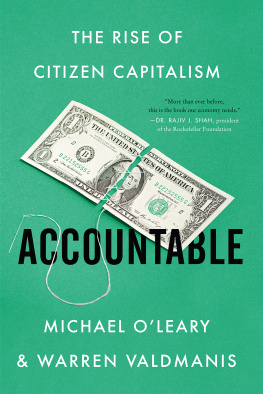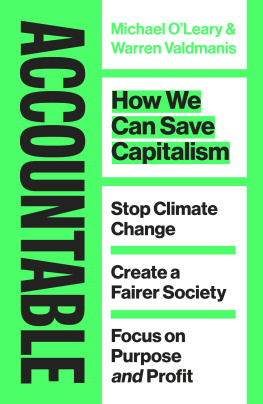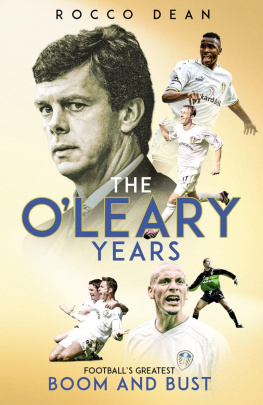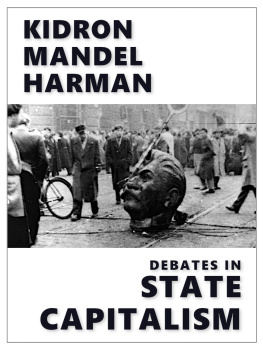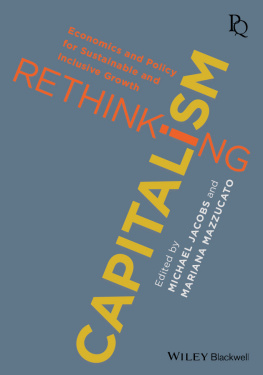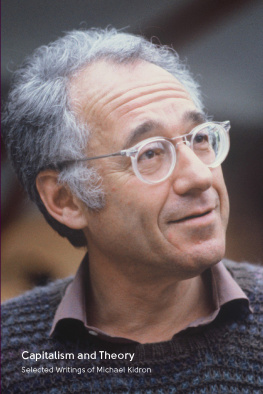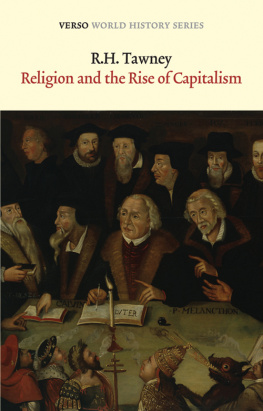Michael OLeary - Accountable: The Rise of Citizen Capitalism
Here you can read online Michael OLeary - Accountable: The Rise of Citizen Capitalism full text of the book (entire story) in english for free. Download pdf and epub, get meaning, cover and reviews about this ebook. year: 2020, publisher: HarperCollins, genre: Politics. Description of the work, (preface) as well as reviews are available. Best literature library LitArk.com created for fans of good reading and offers a wide selection of genres:
Romance novel
Science fiction
Adventure
Detective
Science
History
Home and family
Prose
Art
Politics
Computer
Non-fiction
Religion
Business
Children
Humor
Choose a favorite category and find really read worthwhile books. Enjoy immersion in the world of imagination, feel the emotions of the characters or learn something new for yourself, make an fascinating discovery.
- Book:Accountable: The Rise of Citizen Capitalism
- Author:
- Publisher:HarperCollins
- Genre:
- Year:2020
- Rating:3 / 5
- Favourites:Add to favourites
- Your mark:
- 60
- 1
- 2
- 3
- 4
- 5
Accountable: The Rise of Citizen Capitalism: summary, description and annotation
We offer to read an annotation, description, summary or preface (depends on what the author of the book "Accountable: The Rise of Citizen Capitalism" wrote himself). If you haven't found the necessary information about the book — write in the comments, we will try to find it.
Accountable: The Rise of Citizen Capitalism — read online for free the complete book (whole text) full work
Below is the text of the book, divided by pages. System saving the place of the last page read, allows you to conveniently read the book "Accountable: The Rise of Citizen Capitalism" online for free, without having to search again every time where you left off. Put a bookmark, and you can go to the page where you finished reading at any time.
Font size:
Interval:
Bookmark:
In memory of our fathers
They went profoundly into the science of business, and indicated that the purpose of manufacturing a plow or a brick was so that it might be sold. To them, the Romantic Hero was no longer the knight, the wandering poet, the cowpuncher, the aviator, nor the brave young district attorney, but the great sales-manager... who devoted himself and all his young samurai to the cosmic purpose of Sellingnot of selling anything in particular, for or to anybody in particular, but pure Selling.
Sinclair Lewis, Babbitt (1922)
I got to figure, the tenant said. We all got to figure. Theres some way to stop this. Its not like lightning or earthquakes. Weve got a bad thing made by men, and by God thats something we can change.
John Steinbeck, The Grapes of Wrath (1939)
Saving Capitalism from Itself
Division, Despair, and Dividends in Corporate America
If all else fails, Peter Thiel has an escape route.
The billionaire cofounder of PayPal has hedged himself against the collapse of society. His answer? New Zealand. Thiel purchased a five-hundred-acre sheep farm in South Island, a comfortable seven thousand miles away from his home in California. There hes protected from crisis, pandemic, and a population increasingly on the brinkof what? Thats the worry.
Hes not alone. Drawn to the countrys six-to-one sheep-to-human ratio and neutral stance on just about everything, Thiel and his Silicon Valley cohort have contributed to a tenfold increase in applications for New Zealands Investor Plus visaswhich require a three-year investment of over $6 millionfrom 2010 to 2018.
For those hoping to stay closer to home, $4.5 million will buy a Survival Condo Penthouse unit in a converted missile silo in Kansas. The unit boasts nine-foot-thick walls and military-grade security. Residents can schedule airport pickup on the Pit-Bull VX armored truck. At the silo, they can stroll in the dog park, work up a sweat on the climbing wall, or watch the end of times from the comfort of their own movie theater. One customer wrote, I feel better knowing that I have a luxury survival bunker for my family if anything happens.
For todays wealthy, the new must-have is a way out.
It feels somehow appropriate that a corporation would aim to profit from the end of capitalism. Alexis de Tocqueville noted that Americans always put something heroic into their way of trading. He wrote, I know of no country, indeed, where wealth has taken a stronger hold on the affections of men.
Unique in world history, America is a nation founded by corporationstwo corporations, in fact: the Massachusetts Bay Company and the Virginia Company, both for-profit ventures before becoming political colonies.
Before thirteen colonies became one nation, seven hundred English shareholders became one company. A single share in the Virginia Company cost 12 pounds, 10 shillingssix months wages for an ordinary worker. For those willing to work seven years for the company in Virginia, the share was free.
As the historian Bhu Srinivasan writes, those early American settlements were funded through private investment, with the risks borne by private interests and the lives of men.
The lives of men indeed: After seventeen years and hundreds of supply ships, 85 percent of Virginias settlers had died. So King James I revoked the companys charter in 1624, forcing Virginia to be ruled as a colony instead.
Those were inauspicious beginnings for a country that would win the Cold War 365 years later in the name of capitalism. And though those corporate beginnings have transmogrified into Thanksgiving school plays, the United States has always struggled with the morality of its economy. This is a country built off tobacco and slaves, fossil fuels and global finance. Corporations had legal personhood before women did.
Rutherford B. Hayes, president during the Gilded Age, wrote in his diary, This is a government of the people, by the people, and for the people no longer. It is government by the corporations, of the corporations, and for the corporations. The countrys history has always been an uncomfortable balance of private and public interests, of people and the corporations they create.
Capitalism is once again on trial. Pernicious inequality and catastrophic climate change. Global instability and plateauing growth. Decaying institutions and receding opportunity.
Inequality is at a postwar high. In Boston, the gap in life expectancy between those living in adjacent rich and poor neighborhoods is thirty-three years.
We often talk of stagnant wages but not what those wages can buy. Whereas the manufactured bread and circuses of fast food and flat-screen televisions have gotten cheaper, the things that give our lives dignityeducation, fresh food, health carehave gotten much more expensive. If we were to adjust wage growth by a Consumer Dignity Index instead of the standard Consumer Price Index, wed see that most peoples wages havent been stagnant; theyve been in steep decline.
Weve descended into a corporate-sponsored Brave New World, complete with a calcified caste system and the soma of cheap consumer goods and drugslicit or illicitto dull the pain. This is how the world ends: not with a bang but with a binge-worthy Netflix series.
Based on one 2020 study, 56 percent of people worldwide believe that capitalism as it exists today does more harm than good in the world. Its all enough to make us ask: Can we save capitalism from itself? Should we?
The United States was born by the corporation, and it may die by it, too. Maybe Thiel isnt crazy to want a way out.
Our most critical social and environmental challenges have been caused, in large part, by the explicit amorality of corporations. Our economy is dominated by the ideology that private vice makes for public virtue. And so our world is dominated by corporations that reflect no deeper purpose than profit. They embody no broader values than shareholder value. They are accountable to nothing but the bottom line.
Transforming our corporations will be hard. And we cant fix all that is wrong with capitalism without changing government and individual behavior as well. But neither can we make real progress without addressing the lack of purpose, values, and accountability within our corporations.
Capitalists should want to fix corporations. Too often profit is confused with value, but they are not the same thing. Profit is what happens today. Value is the long-term prosperity driven by strong customer, employee, and supplier relationships; positive community involvement; sustainable production; and cooperation with government in problem solving. We will make our corporations more valuable when we focus them on these things.
Furthermore, capitalists should want to fix corporations because capitalists are citizens, too. Before the pandemic, corporate profits were higher than ever, but workers, society, and the planet still suffered. This cant go on forever, and it wont. Capitalists, in their capacity as citizens, have an interest not just in avoiding the guillotine but also in living in a more equal, healthy, and sustainable world. That requires asking fundamental questions about our corporations: What is their purpose? What are they capable of producing for society?
Hegel predicted that the basic unit of modern society would be the state... Lenin and Hitler that it would be the political party, wrote John Micklethwait and Adrian Wooldridge in their book The Company: A Short History of a Revolutionary Idea. Before that, a succession of saints and sages claimed the same for the parish church... they have all been proved wrong. The most important organization in the world is the company: the basis of the prosperity of the West and the best hope for the future of the rest of the world.
Font size:
Interval:
Bookmark:
Similar books «Accountable: The Rise of Citizen Capitalism»
Look at similar books to Accountable: The Rise of Citizen Capitalism. We have selected literature similar in name and meaning in the hope of providing readers with more options to find new, interesting, not yet read works.
Discussion, reviews of the book Accountable: The Rise of Citizen Capitalism and just readers' own opinions. Leave your comments, write what you think about the work, its meaning or the main characters. Specify what exactly you liked and what you didn't like, and why you think so.

